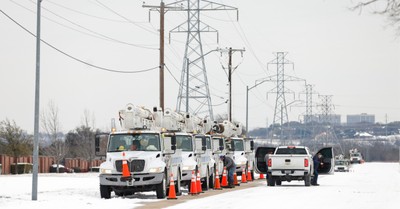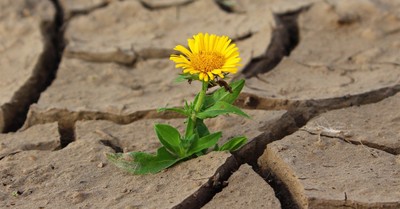
Despite how much has changed and how much more chaotic the headlines might be today, the core truth is that a posture of gratitude is one that recognizes Whose world this actually is.

Despite how much has changed and how much more chaotic the headlines might be today, the core truth is that a posture of gratitude is one that recognizes Whose world this actually is.
Our electricity and water crisis in Texas calls us to gratitude for electricity and water. The coronavirus pandemic calls us to gratitude for life and health. The recession calls us to gratitude for the financial resources we still possess. The January 6 attack on the Capitol calls us to gratitude for the democracy it threatened. The growing threats against religious liberty call us to gratitude for the religious freedom we enjoy.
And the finitude of this life calls us to gratitude for the greater life to come.
As Christ-followers, our supreme leader is Jesus who has not only modeled to us how to serve others through stories such as the Feeding of the 5,000, but he has also made it clear that we are to serve in all seasons. Whether there is one person or 5,000 in need, we have been called to serve so that we can share the love of Christ.
Harvard professor Arthur C. Brooks has a terrific article in The Atlantic titled, “New Year’s Resolutions That Will Actually Lead to Happiness.” After surveying literature regarding our typical difficulties in keeping resolutions for the new year, he determines that “the key to success is positive motivation.” Then he identifies the two motivations that most lead to happiness: forgiveness and gratitude.
In writing on thanksgiving during a pandemic, my purpose is not to be naïve but to suggest that choosing an attitude of gratitude even in the darkest days is best for us. It honors the One who made us, loves us, and redeems us by his grace. And it shows a suffering world that our hope is based not on our suffering world but on our loving Lord.
Scripture calls us to “give thanks in all circumstances, for this is the will of God in Christ Jesus for you” (1 Thessalonians 5:18). We are to “give” thanks, not “feel” thanks. The holiday is Thanksgiving, not Thanksfeeling.
So we need to brace ourselves. Adjust our expectations. April as we wanted will not happen. God willing, it will reappear in 2021. But the 2020 version? It’s time for a deep breath, a steady resolve and a few decisions. I’m thinking of three essential, emotional tools.
Gratitude. Collect your blessings. Catalog God’s kindnesses.





